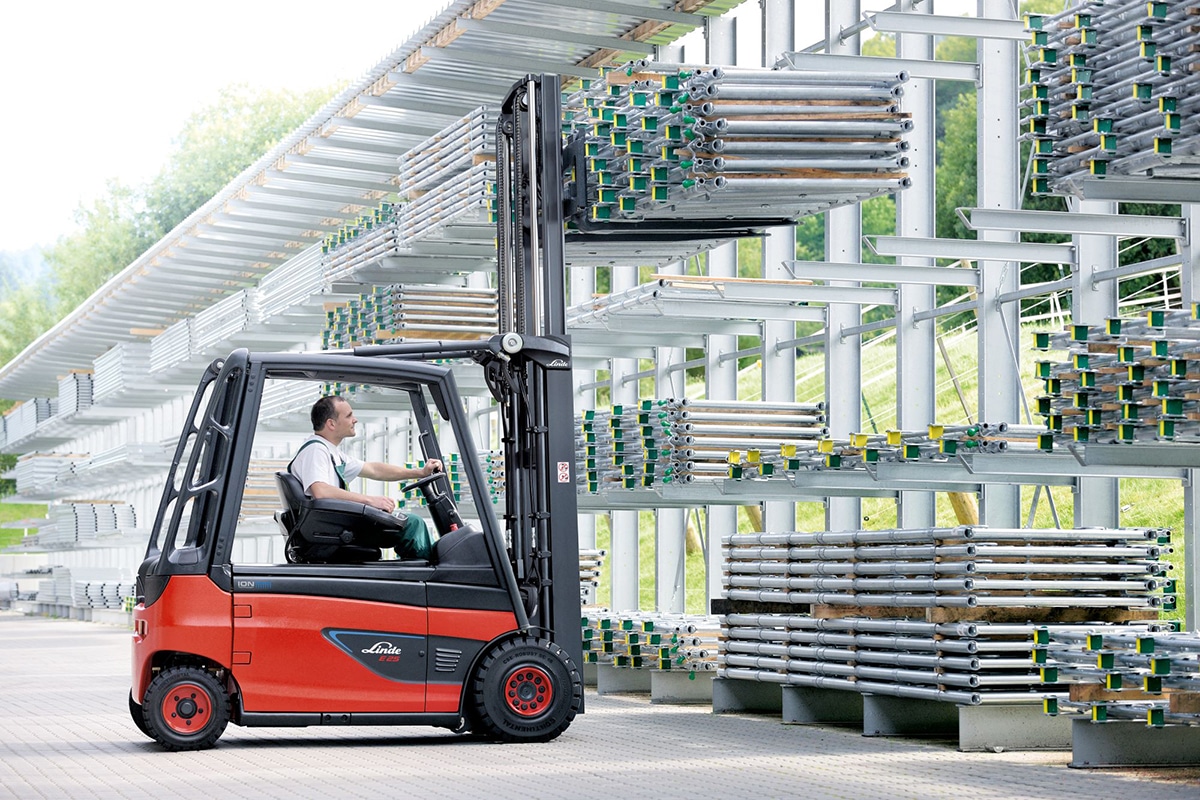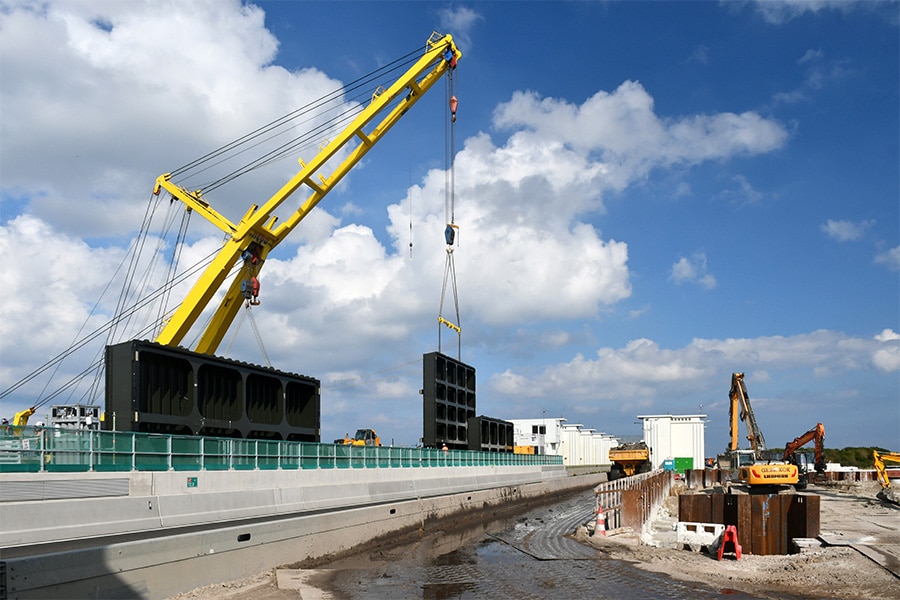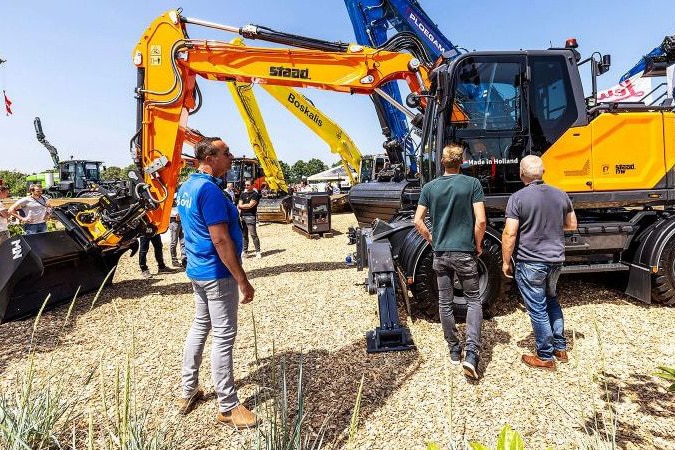
Will the signal ever go green for a rail link between Nijmegen and Düsseldorf?
If it were up to Maarten Bakker, it would be. Bakker, 30, is a VVD councilor in the Municipality of Nijmegen and holds the portfolios of Accessibility and Sustainability. A direct railroad line from Nijmegen to Germany, into North Rhine-Westphalia, is high on the wish list. There are both economic and sustainable reasons behind this, according to Bakker.
In principle, the rail route is already there, however, the route was decommissioned in 1991, especially the town of Groesbeek, Municipality of Berg & Dal, no longer wanted it. "There, then, is the crux," Bakker outlines. "Groesbeek is against the reopening of the line and partly because of that, plans around the reopening are considered unfeasible by various parties."
Track connects and track separates
As a Gelderland village, Groesbeek has skyrocketed up the national tourism ladder in recent years. The center of the village has recently been modernized and only the rails that are still there are reminders of times gone by, when people still had to wait in the middle of the village several times a day for closed crossing gates. Isn't it understandable that "the Groesbeker" is no longer waiting for the line to reopen, we ask Bakker. He answers, "Well, if you think back to how it used to be. Polluting diesel locomotives, no bypass around the village and declining passenger numbers... But times change. Borders still exist mostly on paper, trains are getting cleaner and tourism is increasing. Opening up the railroad is a win-win situation for everyone."
The railroad, despite being in dormant condition, really belongs to Groesbeek. Whoever lives there comes "from above the railroad" or "from below the railroad. The railroad connects and separates the village at the same time. That may be seen literally and figuratively, Bakker believes. "The interests served by the opening up are legion. Nijmegen is 5 kilometers from the border, but anyone who now wants to go from Nijmegen to Germany by train has to make a 35-km detour via Arnhem, surely that is not sustainable? Furthermore, Nijmegen's only access to Germany is the N325, a road that goes from Nijmegen to Kranenburg, but literally comes to a dead end in a meadow just across the border. Germany never finished the connection, because of a nature reserve. So you drive after the N325 on country roads into Germany. There are considerable traffic jams with commuter traffic on the N325. The Radboud University in Nijmegen and the Klever Hochschule in Germany are also in favor of reactivation. Students come from both sides of the border and the institutions are right on the railroad tracks. Businesses on both sides of the border also prefer to see their staff arrive on time."
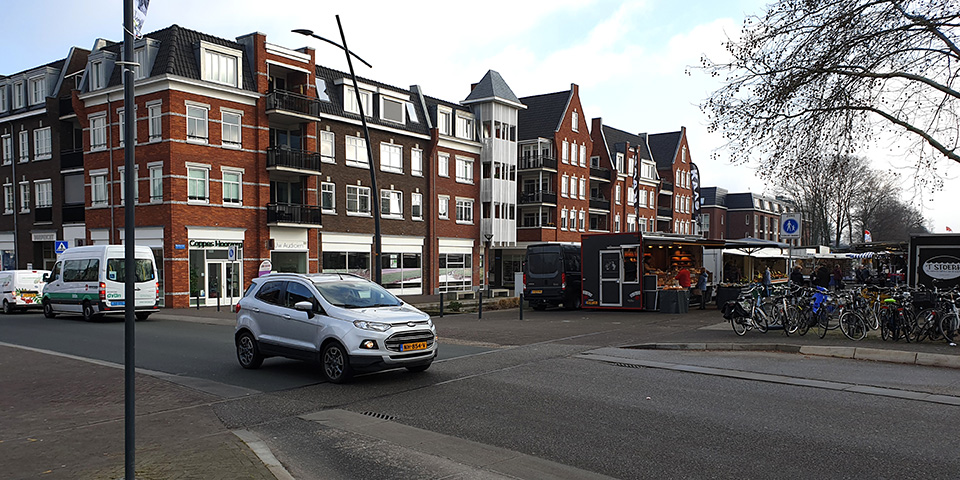
A car drives across the spot where the barriers used to open and close. The rails are still visible in the asphalt.
On land, sea and air
Another advantage is outlined by Bakker: "Nijmegen is fast becoming a very important logistics hub. The Waalhaven is the largest inland port in the Netherlands. The A15 will be extended to the A12 and a rail terminal will be built on the Betuweroute. The only thing missing is easy access to the nearest airports. These are the Weeze and Düsseldorf airports for Nijmegen. Both airports would be reachable by train, if rail becomes active again. I don't think I need to explain the economic importance." The plans to reopen the line are certainly not new and recur periodically on various agendas. According to Bakker, in Nijmegen, the VVD, the PVDA, the FNV and the boards of Radboud University and HAN have long been supporters. Why does it just keep falling through? "Gedeputeerde Staten Gelderland says reactivation is not worthwhile, because municipality Berg en Dal does not want it. The basis for this is their coalition agreement, which states, 'Reactivation of the Nijmegen-Kleve railroad line is not an issue within this coalition period.' Where other parties in the region are discussing or wish to investigate this possibility, we will follow the developments without deploying our own resources for this purpose.' That agreement runs until 2022 and does not rule out reactivation after that period."
Yet the province does draw that conclusion according to you? Bakker: "They think mainly in terms of impossibilities; not all information is included in the studies. So you keep turning in a vicious circle. In November 2018, North Rhine-Westphalia and State Secretary Knops signed a declaration stating they want better cross-border connections. Therefore, this is the moment. Practical problems need to be solved, for example, funds from Germany are only available for a train connection. And that while we should look for the solution for Groesbeek more in light rail or a new silent concept. Until it is really looked at by professional parties from the rail infrastructure, there are question marks."
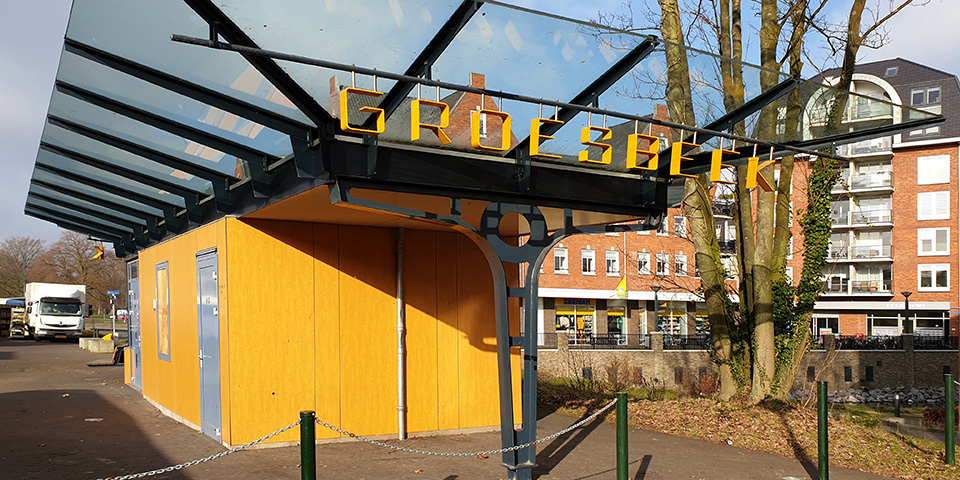
As a tourist attraction, Groesbeek has built a "draisine station" next to the railroad. By bicycle trolley, tourists can ride to the old station Kranenburg in Germany.
Taking advantage of opportunities now that the time is ripe
Bakker is a committed person and, moreover, he has "roots" in Groesbeek and Nijmegen. "I was born in Nijmegen, raised in Groesbeek and live in Nijmegen again. I am committed to restoring this rail connection with Germany. For Nijmegen it is important for the university, HAN and the economy. Beautiful Groesbeek is opened up for tourists at the same time. Moreover, from a broader perspective, we are making huge sustainability gains. This is low-hanging fruit. It would be a real shame to miss this opportunity for Nijmegen, Groesbeek and Germany. Companies in the rail infra that want to think along are welcome to contact me."
